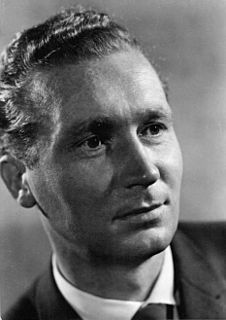
Frank Paul Beyer was a German film director. In East Germany he was one of the most important film directors, working for the state film monopoly DEFA and directed films that dealt mostly with the Nazi era and contemporary East Germany. His film Trace of Stones was banned for 20 years in 1966 by the ruling SED. His 1975 film Jacob the Liar was the only East German film ever nominated for an Academy Award. After the fall of the Berlin Wall in 1989 until his death he mostly directed television films.
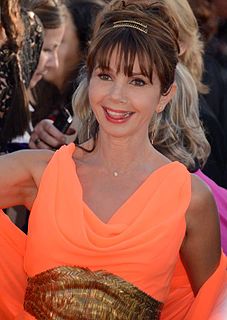
Victoria Mérida Rojas, better known as Victoria Abril, is a Spanish film actress and singer based in France. She is possibly best known to international audiences for her performance in the film Tie Me Up! Tie Me Down! by director Pedro Almodóvar.

Angel Raymond Wagenstein is a Bulgarian screenwriter and author. Wagenstein was born in Plovdiv, Bulgaria, but spent his childhood in France where his Jewish family emigrated for political reasons due to their leftist politics.
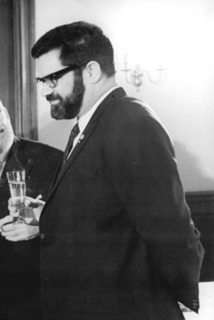
Konrad Wolf was an East German film director. He was the son of writer, doctor and diplomat Friedrich Wolf, and the younger brother of Stasi spymaster Markus Wolf. "Koni" was his nickname.

The DEFA Film Library at the University of Massachusetts Amherst is the only archive and research center outside of Germany devoted to a broad spectrum of filmmaking from and related to the former East Germany. DEFA was the state owned film company of the GDR. The non-profit organization houses an extensive collection of 35mm and 16mm prints, dcps, DVDs, books, periodicals and articles. Students are involved in all aspects of the archive's research, outreach and teaching activities and also gain valuable non-academic experience in subtitling and library, conference and arts management. In order to fulfill its dual mission—to make DEFA films available and better known, and to broaden understanding of filmmaking in the GDR by interdisciplinary critical scholarship—the DEFA Film Library undertakes a range of scholarly and support activities.

Coming Out is a 1989 East German film directed by Heiner Carow and written by Wolfram Witt which deals with the lead character, a high school teacher, "coming out" and accepting himself as gay. It was the last East German film released to the public prior to the German reunification and one of the last films made by DEFA, the East German state film studio, and the only gay-themed feature film that it made.

The Berlin International Film Festival, usually called the Berlinale, is a film festival held annually in Berlin, Germany. Founded in West Berlin in 1951, the festival has been held every February since 1978 and is one of the "Big Three" alongside the Venice Film Festival in Italy and the Cannes Film Festival in France. Since 2019, Mariette Rissenbeek serves as the executive director of the festival, while Carlo Chatrian is the artistic director.
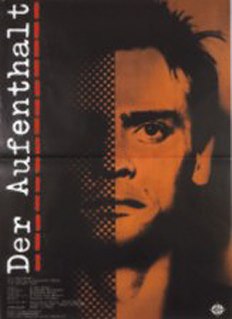
The Turning Point is a 1983 East German film directed by Frank Beyer and starring Sylvester Groth, Fred Düren and Klaus Piontek. The film is based on the 1977 novel of the same name by Hermann Kant, which was based on Kant's own experience as a prisoner of war in Poland. The film tells the story of a German prisoner of war at the end of World War II who is wrongly accused of being a war criminal. The film was controversial upon release as Polish commentators criticized that the film showed the Polish army wrongly accusing someone of war crimes. Nevertheless, the film was successful and won several awards and was the East German official submission to the 56th Academy Awards for Best Foreign Language Film.

Michael Gwisdek was a German actor and film director.
The 60th annual Berlin International Film Festival was held from 11 to 21 February 2010, with Werner Herzog as President of the Jury. The opening film of the festival was Chinese director Wang Quan'an's romantic drama Apart Together, in competition, while the closing film is Japanese director Yoji Yamada's About Her Brother, which was screened out of competition. The Golden Bear went to Turkish film Bal directed by Semih Kaplanoğlu. A new record attendance was established with 282,000 sold tickets, according to the organizers. A restored version of Fritz Lang's Metropolis was also shown at the festival.
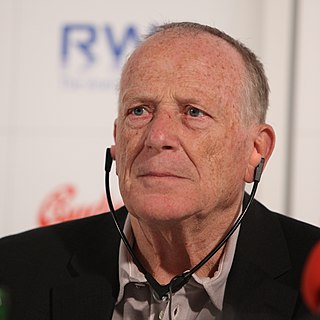
Wolfgang Kohlhaase is a German film director and was one of GDR's most well-known and prolific film screenwriters. He was awarded the Honorary Golden Bear at the 2010 Berlin International Film Festival.
Renate Krößner also known as Renate Krössner was a German actress who was internationally recognized for roles in films and television. She was awarded the Silver Bear for Best Actress of the Berlinale for the title role in the 1980 film Solo Sunny. From 1985, she worked in West Berlin and was known for roles in TV series such as Tatort and Einmal Bulle, immer Bulle.

Andreas Dresen is a German film director. His directing credits include Cloud 9, Summer in Berlin, Grill Point and Night Shapes. His film Stopped on Track premiered at the Un Certain Regard section at the 2011 Cannes Film Festival, where it won the Prize of Un Certain Regard. Dresen is known for his realistic style, which gives his films a semi-documentary feel. He works very teamoriented and heavily uses improvisation. In 2013 he was a member of the jury at the 63rd Berlin International Film Festival.

The 28th annual Berlin International Film Festival was held from 22 February to 5 March 1978. Director Wolf Donner successfully managed to shift the festival's date from June to February, a change which has remained ever since. This was the first year the festival was held in February. The festival opened with Opening Night by John Cassavetes and closed with Steven Spielberg's out of competition film Close Encounters of the Third Kind.

The 30th annual Berlin International Film Festival was held from 18–29 February 1980. The Golden Bear was awarded to the American film Heartland directed by Richard Pearce and West German film Palermo oder Wolfsburg directed by Werner Schroeter.

The 32nd annual Berlin International Film Festival was held from 12–23 February 1982. The Golden Bear was awarded to the West German film Veronika Voss directed by Rainer Werner Fassbinder.

The 35th annual Berlin International Film Festival was held from 15 to 26 February 1985. The Golden Bear was awarded to East German film Die Frau und der Fremde directed by Rainer Simon and British film Wetherby directed by David Hare. The retrospective was dedicated to Special effects.

A Berlin Romance is a 1956 East German neo-realist romantic drama film about youth urban life in the divided city of Berlin, directed by Gerhard Klein. It was produced by the DEFA film company. It stars Annekathrin Bürger, Ulrich Thein and Uwe-Jens Pape. The script was written by Wolfgang Kohlhaase with a score composed by Günter Klück. The film was the second collaboration between Klein and Kohlhaase; the first was Alarm in the Circus, released in 1954 and third came in 1957 with Berlin - Ecke Schönhauser. These films were noted for their strong criticism of consumer culture in Berlin after World War II and the Americanization of the capital and are amongst DEFA's best known films.
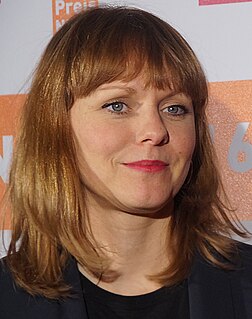
Maren Ade is a German film director, screenwriter and producer. Ade lives in Berlin, teaching screenwriting at the Film Academy Baden-Württemberg in Ludwigsburg. Together with Janine Jackowski and Jonas Dornbach, she runs the production company Komplizen Film.
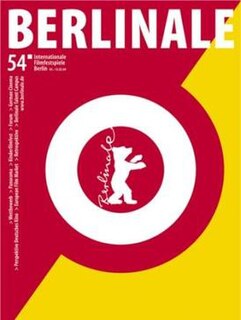
The 54th annual Berlin International Film Festival was held from 5–15 February 2004. The festival opened with out of competition film Cold Mountain by Anthony Minghella. 25 Degrees in Winter by Stéphane Vuillet served as the closing film. The Golden Bear was awarded to German-Turkish film Head-On directed by Fatih Akın.

















